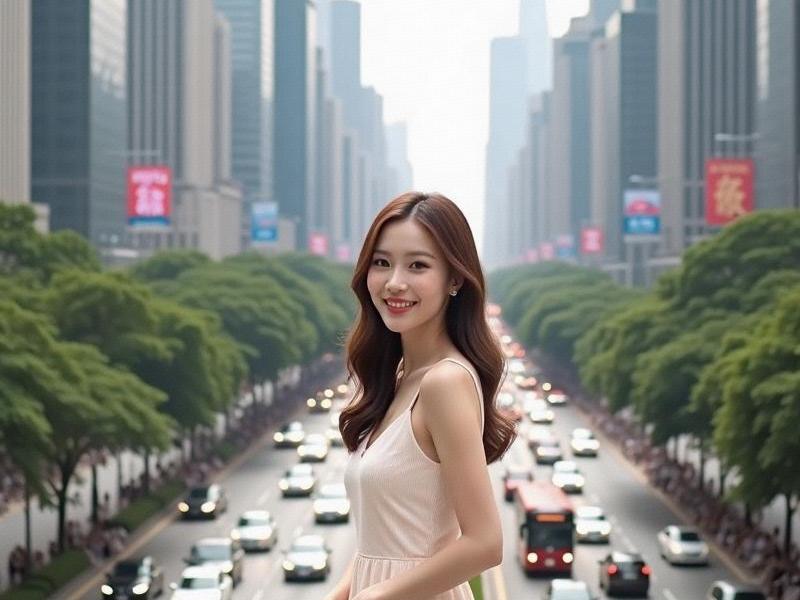
The morning light filtering through Xuhui's plane trees illuminates a revealing ritual at DR.JART+ flagship store, where 28-year-old private equity analyst Emma Zhou meticulously compares Korean cushion compacts with French organic tinted moisturizers—a daily decision embodying Shanghai's unique beauty alchemy. This cosmopolitan discernment has transformed Shanghai into Asia's fastest-growing prestige beauty market (projected to reach ¥112 billion by 2026), where women deploy skincare regimens as sophisticated as their investment portfolios.
Shanghai's beauty narrative reflects its mercantile history. The 1930s saw "Modern Girls" (摩登女郎) at the Paramount Ballroom blending qipao silhouettes with Hollywood waves. The 1980s economic reforms birthed China's first beauty parlors along Huaihai Road. Today's Shanghainese woman might combine gua sha rituals with LED light therapy, demonstrating what Fudan University sociologist Dr. Li Yan calls "calculated eclecticism"—the local practice of curating global trends through a distinctly Shanghainese lens.
爱上海论坛 Market data reveals this cultural synthesis. Shanghai women spend 62% more on beauty annually than the national average (¥8,900 vs ¥5,500), with 73% maintaining hybrid skincare routines combining TCM herbs with cosmeceutical actives. The city hosts China's highest density of beauty concept stores (1 per 8,000 residents), while local consumers drive 38% of luxury beauty e-commerce despite representing just 1.7% of China's population. "Shanghai women don't follow trends—they edit them," observes L'Oréal China CEO Fabrice Megarbane.
Entrepreneurial women are rewriting industry rules. Former Vogue editor Cici Xiang's startup "Yù" has revolutionized Chinese cosmetics by adapting rare Ming Dynasty porcelain glazing techniques for modern lipstick finishes. Biomedical engineer Dr. Wang Lin's company "Hào" develops AI-powered foundation shades using facial mapping data from 50,000 Shanghainese women. These innovations reflect what Alibaba's beauty sector director calls "the Shanghai Dividend"—the city's unmatched ability to commercialize cultural capital.
上海花千坊爱上海 The workplace fuels aesthetic experimentation. In Lujiazui's financial towers, fund managers pair Rothko-red lipstick with tailored neutrals to project what corporate coach Amanda Wu terms "powerful approachability." Tech founders in Yangpu District champion "STEM beauty"—minimalist skincare backed by data analytics. Even traditional sectors see change: at the 150-year-old Huxinting Teahouse, servers now wear contemporary makeup that references 19th-century courtesan styles through modern gradients.
上海贵族宝贝sh1314 Social media amplifies Shanghai's influence. Local beauty creators generate 52% of China's viral makeup tutorials despite representing just 3% of influencers. Unique to Shanghai are trends like "Jing'an Contouring" (mimicking the district's art deco architecture in highlight placement) and "Puxi-Pudong Duality" (daytime natural looks transitioning to metallic evening styles). Xiaohongshu data shows Shanghai-originated hashtags achieve 4.2× the engagement of other cities' beauty content.
Beneath the polished surface exist tensions. The pressure to maintain "effortless perfection" contributes to Shanghai having China's highest rate of non-invasive procedures among 25-35-year-olds (1 in 4 according to 2024 surveys). Yet a growing "bare face movement" led by university students emphasizes skincare over makeup, while eco-conscious consumers propel Shanghai's clean beauty market to 82% annual growth—the nation's fastest.
As Shanghai prepares to host the 2026 International Beauty Innovation Forum, its women continue redefining global standards. They've crafted an aesthetic language that celebrates both razor-sharp eyeliner and laugh lines, where a dermatologist's prescription holds equal weight with grandmother's pearl powder remedies. In Shanghai's gleaming department stores and hidden lane-house salons, beauty isn't about conformity—it's the art of becoming distinctly, unapologetically yourself.
